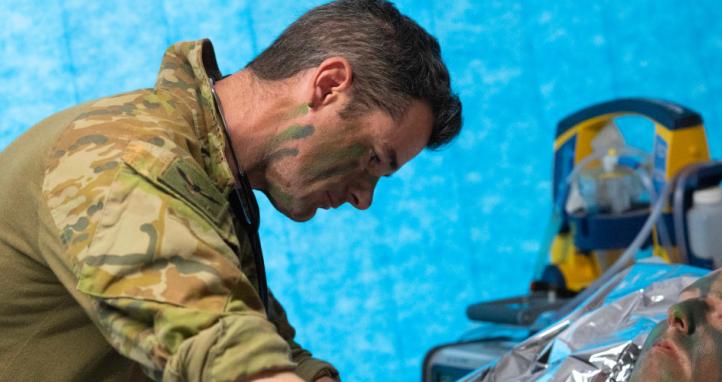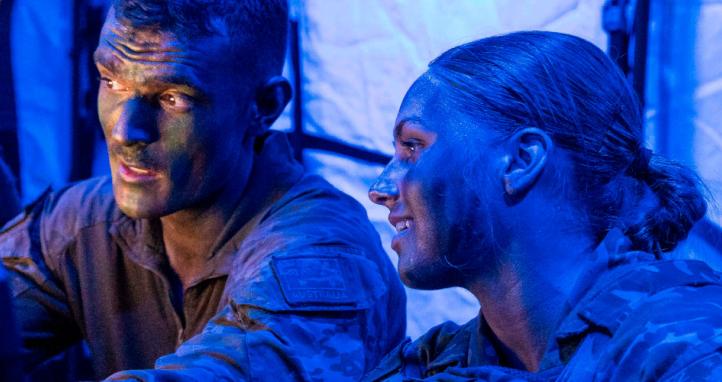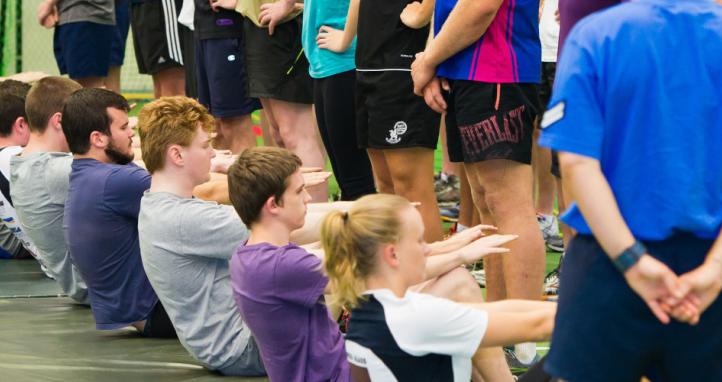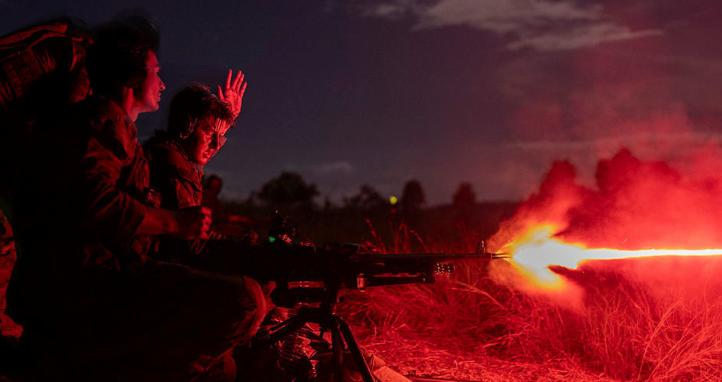The Australian Defence Force (ADF) is modernising rapidly. Emerging technologies and operating methods present a range of opportunities to significantly enhance capability. To ensure this modern force is appropriately sustained into the future, the ADF’s logistics capabilities cannot afford to be left behind.
The Army Logistic Training Centre Fiction Competition encouraged writers and multimedia artists to visualise the future of logistics in the 2025 – 2040 timeframe.
The logistics operations and dispatch room of the Logistics Company of the Tenth Combat Systems Support Battalion was a tidy and ordered affair; Officer Commanding, Major Nicolas Beatty would have it no other way. Neither, both by personal inclination and a desire to keep their boss happy, would the operators under his command. It had taken the 40-something major almost two years to gather his crew together, calling in favours from other officers and working no small amount of personnel management black magic to fill his team with operators who had the right mix of civilian and military backgrounds to meet his, and his commanding officer’s vision. He didn’t mind taking the time. Major Beatty was not a careerist – he knew he was at his ceiling rank, and as a former Reservist doing a full-time contract, the Army was never his first passion. But he brought with him a range of skills from his civilian career, and a passion for fixing problems personally. That was why he’d been tapped to command the new drone-centric logistics unit, the brain-child of the Battalion’s Commanding Officer.
Where he could, Major Beatty had personally trained his operators in the new drone-based logistic disbursement system. When he couldn’t do it personally – and there was only so much one person could do – he’d arranged to have the best civilian experts come and do the job for him. It was not that Major Beatty did not trust the military’s way of doing things, it was rather that he was a big believer in the adage of taking what was useful, and disregarding that which was not; and civilian logistics experts with a background in drone-reliant systems could be damned useful when you are, in effect, replicating the same system with camouflage paint, 3D printing, and some sexy combat protocols.
‘Logistics just happens’, might have been the short-sighted catch-cry of far too many combat jocks, but after years as a project manager on civie-street to supplement hard-won operational knowledge from his time in the Middle East, Major Beatty knew differently. Logistics was planned, carefully arranged, and – for a multi-phased smart-system fed with historical data and plugged into combat indicators from front-line units – largely predictable.
Well that was the theory. Today would see the system put to the test.
'Major Beatty,' came a quiet voice behind him. 'Please call the room to order.'
It was Lieutenant Colonel Renee Kidman, the Battalion’s Commanding Officer. Major Beatty had almost forgotten she was there, sitting quietly behind a row of screens, her eyes travelling over the constant data feeds coming in from across the battlespace. Major Beatty was reminded of a spider sitting in its web; waiting for the tug of information along the streams of data the sensing drones and combat units fed into her screens. Doctrine frowned on giving commanding officers such immediate and intimate situational awareness as the Lieutenant Colonel had, the general belief being it led to information overload and decision paralysis. But a special case had been made by, and then agreed to for Lieutenant Colonel Kidman. First, she was no regular logistics officer. A part-time soldier like her subordinate commander, Lieutenant Colonel Kidman had a PhD in mechatronics, and – in her civilian job for the Defence Science and Technology Organisation, had been the project leader for the design of the drone-centric disbursal system being trialled today. Secondly, Lieutenant Colonel Kidman was there to conduct a study into their effectiveness, not to interfere.
Major Beatty barked a short command to the Company Sergeant Major, hoping his Commanding Officer wasn’t about to make a speech and steal his thunder; he wanted to make comments about historic occasions and so on. The Company Sergeant Major called the room to order. The room stilled, and focussed on Lieutenant Colonel Kidman.
'Team,' she began. 'Major Beatty has spent a long time getting you ready for today. And shortly we’ll see how our little drones do. I have confidence in you all, and I know today will give the whole Australian Defence Force something to think about.' Lieutenant Colonel Kidman paused and gestured with an open palm. 'Major Beatty, there’re all yours.'
Major Beatty grinned, quietly thankful his boss was giving him his moment.
'Well,' he smiled. 'This is it. These drones, your drones, are going to change how logistics is done, and today is the day we change the world. Never before has a logistics unit been so well informed about the requirements of front-line units as we are now. Data from images and inputted commands will tell us exactly what the factors are for usage, distance, routes, security updates, storage and spoilage, ammunition effectiveness and battle-damage reports, weather, air-speed and moisture content.' Major Beatty’s voice was raised and as he followed the grins from his operators, he knew they appreciated the theatre of his speech.
'All of it sent through to us, and what do we do with it? Not a damned thing. We get to sit here and watch screens, while the system does the work.' Chuckles sounded across the room. 'Well, not quite nothing. You are all experts. You’re not here to sit on your bums. You watch the screens, and you use you heads. Yes, let the system calculate the rates of supply, the 3D chem-printing requirements to restock supplies, the resupply routes our drones have to fly and the amount of security needed for their flights. Amazon and Google delivery drones have nothing on us, team!'
'The boss here is going to watch over it all and make sure it doesn’t go belly-up, but I think she’s going to have a slow day. We’ve tested this ourselves a hundred times. We’ve run through the sims with urban and desert conflicts and with everything random the 2-shop can come up with. Every time the drones you have programmed and operated have used their hive structure to meet challenges, rebuilding themselves to meet every task, printing new parts, placing dumps at the right place at the right time to meet every surge – all predicted via the algorithms you have helped make! How many thousands of hours have we spent programming these drones, this whole system, so it knows every combination and can adjust and learn as circumstances change?'
'Too many, sir,' replied one of the operators from the back.
'Damn right, Greeny.' Major Beatty yelled back. 'Too many to see it stuff up because we’d rather sit on our bums today.' The room responded with laughter. 'So pay attention. Call out what you see to your 1-ups. I think we’ve done a good enough job to put ourselves out of a job, but I’d rather see that happen than we drop the ball today. Agreed?'
'Yes sir,' came the reply, all voices in concert.
'Damn right,' Major Beatty said, as much to himself as to the room. He turned to Lieutenant Colonel Kidman.
'Ma’am, please let them know we’re ready to begin.'









